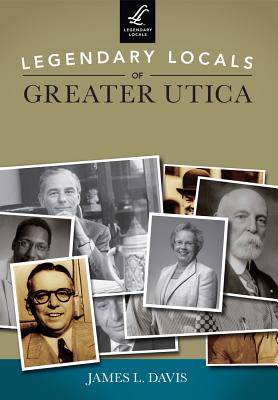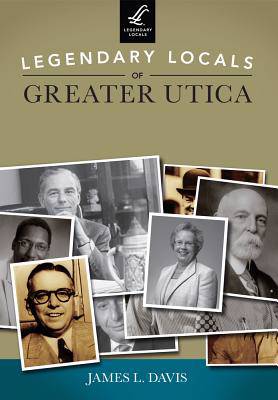
Bedankt voor het vertrouwen het afgelopen jaar! Om jou te bedanken bieden we GRATIS verzending (in België) aan op alles gedurende de hele maand januari.
- Afhalen na 1 uur in een winkel met voorraad
- In januari gratis thuislevering in België
- Ruim aanbod met 7 miljoen producten
Bedankt voor het vertrouwen het afgelopen jaar! Om jou te bedanken bieden we GRATIS verzending (in België) aan op alles gedurende de hele maand januari.
- Afhalen na 1 uur in een winkel met voorraad
- In januari gratis thuislevering in België
- Ruim aanbod met 7 miljoen producten
Zoeken
€ 34,95
+ 69 punten
Omschrijving
Utica's neighborhoods are filled with people whose passion for family, food, faith, and civic engagement are exemplary of the true American experience. Lives devoted to politics, business, sports, and scholarship have found their start, and often times their purpose, in Greater Utica. The nation's politics have been shaped by the likes of abolitionist Gerrit Smith, Congressman Roscoe Conkling, Vice Pres. James Sherman, and political pollster John Zogby. Enterprises including American Express and the Associated Press received boosts from businessmen John Butterfield and Theodore Faxton. Dick Clark hit the Utica airwaves long before American Bandstand was a household favorite, Will Smith wore a Proctor uniform before becoming a New Orleans Saint, and Arthur B. Davies learned to paint Mohawk Valley landscapes before introducing America to modernist art. Those looking to reclaim Utica's birthright as an essential American landmark include chefs Dean and Jason Nole, publisher Donna Donovan, Olympian-turned-entrepreneur Robert Esche, and the brewers of Saranac Beer, the Matt family.
Specificaties
Betrokkenen
- Auteur(s):
- Uitgeverij:
Inhoud
- Aantal bladzijden:
- 128
- Taal:
- Engels
- Reeks:
Eigenschappen
- Productcode (EAN):
- 9781467100847
- Verschijningsdatum:
- 14/10/2013
- Uitvoering:
- Paperback
- Formaat:
- Trade paperback (VS)
- Afmetingen:
- 163 mm x 231 mm
- Gewicht:
- 376 g

Alleen bij Standaard Boekhandel
+ 69 punten op je klantenkaart van Standaard Boekhandel
Beoordelingen
We publiceren alleen reviews die voldoen aan de voorwaarden voor reviews. Bekijk onze voorwaarden voor reviews.









